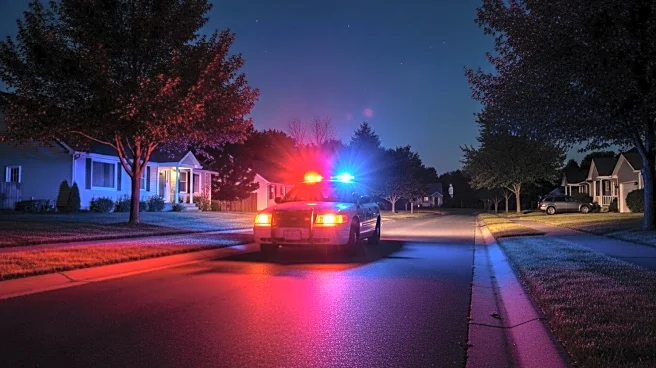What's Happening?
Melissa Rycroft, known for her appearances on 'The Bachelor' and 'Dancing with the Stars,' was arrested for driving while intoxicated in the Dallas/Fort Worth area. The arrest occurred on September 23, and she was taken into custody and booked into the local jail. Rycroft spent eight hours in jail before being released on a $1,000 bond, with a promise to appear in court. The details surrounding her arrest remain unclear, but she is facing a court date related to the charge. Her lawyer, Bret Martin, emphasized the presumption of innocence and urged the public to allow the legal process to unfold without premature judgment.
Why It's Important?
The arrest of Melissa Rycroft, a public figure with a significant following due to her reality TV appearances, highlights ongoing issues related to celebrity behavior and legal accountability. This incident may impact her public image and career, especially as she has been involved in hosting reality shows. The case also underscores the importance of due process and the presumption of innocence, as emphasized by her legal representation. It serves as a reminder of the legal consequences of driving under the influence, which remains a critical public safety issue in the U.S.
What's Next?
Melissa Rycroft is expected to appear in court to address the charges against her. The legal proceedings will likely involve examining the circumstances of her arrest, including law enforcement conduct and toxicology results. The outcome of the case could influence her career and public perception. Stakeholders such as her fans, media outlets, and legal experts will be watching closely as the case develops. The situation may also prompt discussions on celebrity accountability and the legal system's handling of such cases.
Beyond the Headlines
This incident may lead to broader discussions about the pressures faced by public figures and the potential impact on their behavior. It could also spark conversations about the role of media in shaping public opinion before legal outcomes are determined. The case might influence how similar incidents are reported and perceived, highlighting the balance between public interest and individual rights.








